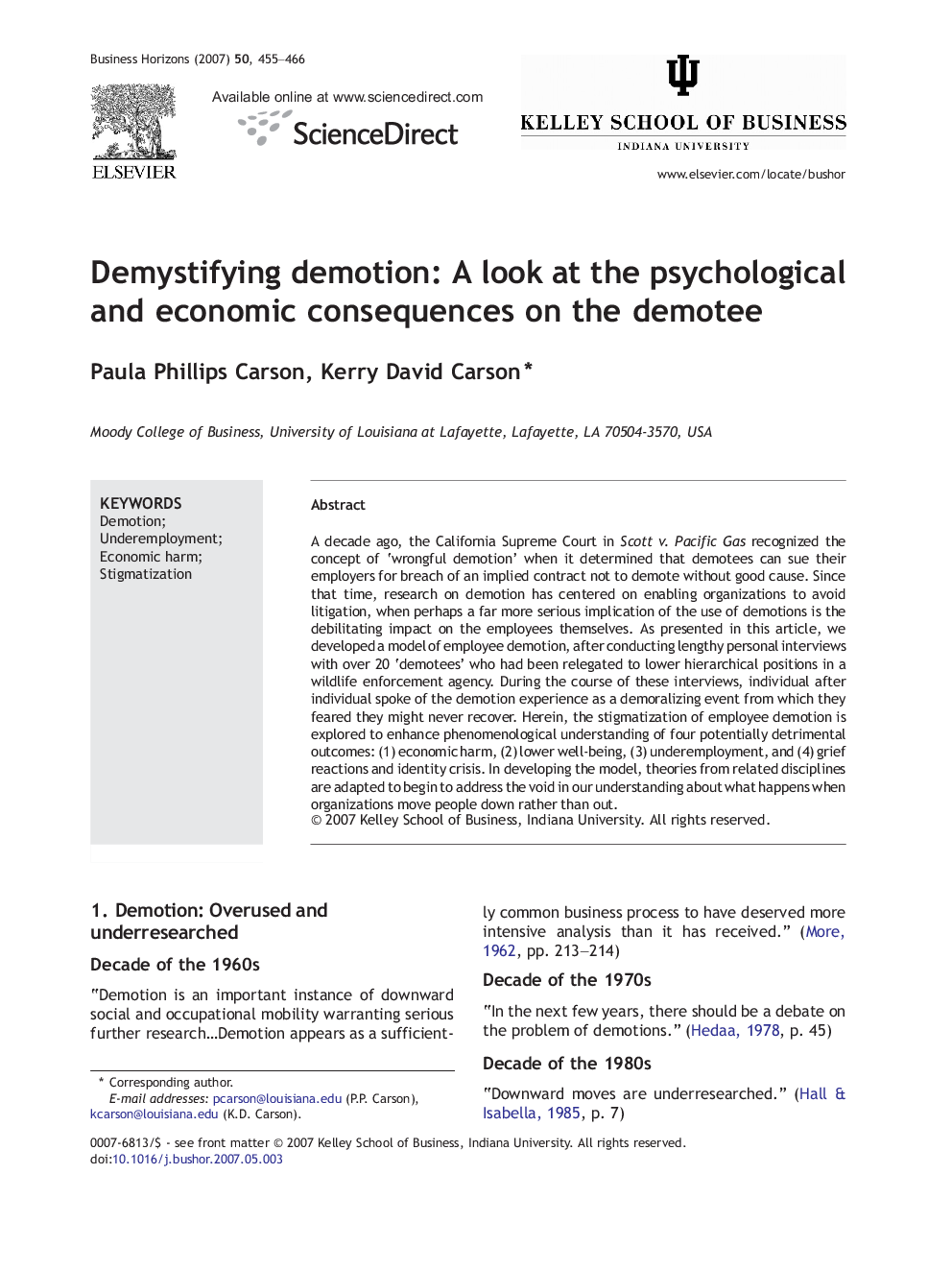| Article ID | Journal | Published Year | Pages | File Type |
|---|---|---|---|---|
| 1014397 | Business Horizons | 2007 | 12 Pages |
A decade ago, the California Supreme Court in Scott v. Pacific Gas recognized the concept of ‘wrongful demotion’ when it determined that demotees can sue their employers for breach of an implied contract not to demote without good cause. Since that time, research on demotion has centered on enabling organizations to avoid litigation, when perhaps a far more serious implication of the use of demotions is the debilitating impact on the employees themselves. As presented in this article, we developed a model of employee demotion, after conducting lengthy personal interviews with over 20 ‘demotees’ who had been relegated to lower hierarchical positions in a wildlife enforcement agency. During the course of these interviews, individual after individual spoke of the demotion experience as a demoralizing event from which they feared they might never recover. Herein, the stigmatization of employee demotion is explored to enhance phenomenological understanding of four potentially detrimental outcomes: (1) economic harm, (2) lower well-being, (3) underemployment, and (4) grief reactions and identity crisis. In developing the model, theories from related disciplines are adapted to begin to address the void in our understanding about what happens when organizations move people down rather than out.
